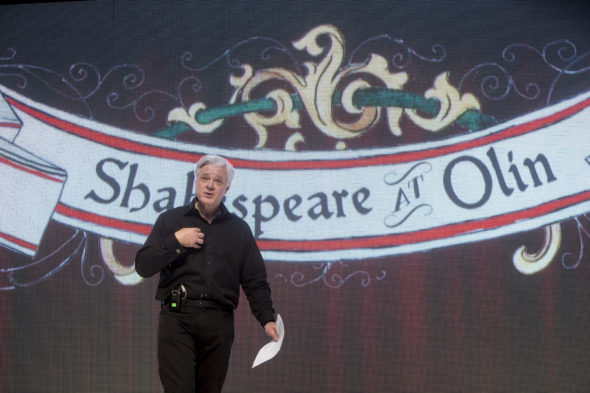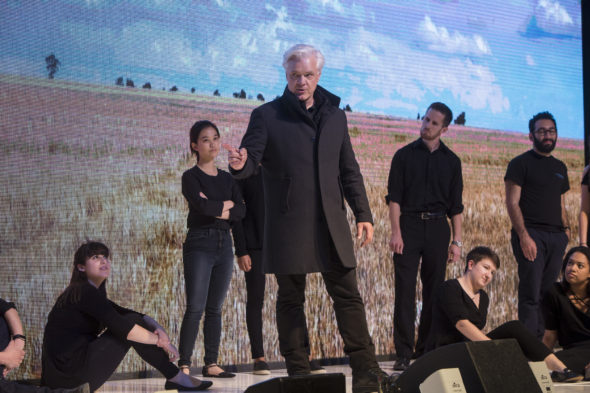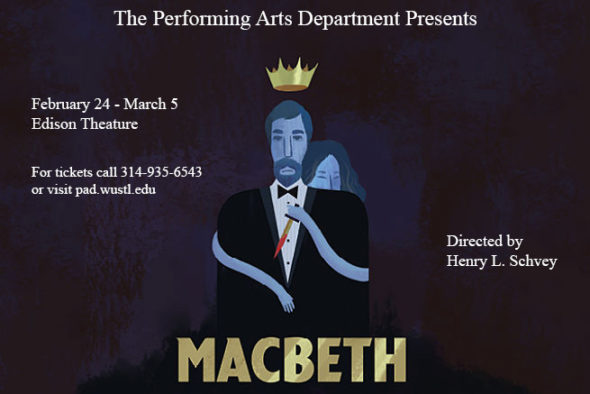This story originally appeared in the 2016 edition of Olin Business Magazine.
Tinker, Trader, Scholar, Dean could be the title of Mark Taylor’s biography. It would translate into an action-packed movie spanning a globe-trotting career of a modern Renaissance man who is a highly respected and recognized expert on foreign exchange markets, professor of international economics, successful hedge fund manager, and, in his spare time, an amateur clock restorer with a personal collection of vintage and antique timepieces dating back to the 17th century. Today, December 1, 2016, Taylor becomes Dean of Olin Business School.
Taylor was drawn to the worlds of high finance and economic theory from his earliest school days at Oxford University. “When I graduated from Oxford, I was so excited about the world,” Taylor recalled during one of his visits to Olin before his December start date as dean. “I didn’t know whether I wanted to be an academic and change the world in terms of producing research that was impactful, or whether I wanted to work in the finance industry. I was in such a hurry, I actually ended up doing both at the same time.”
Foreign exchange trader and economist
Taylor’s first job after earning his undergraduate degree in philosophy, politics, and economics was at Citibank in London as a trainee on the foreign exchange desk. In the evenings, he pursued a master’s degree in economics at London University. With a front row seat to the drama of financial markets by day, and studying theory at night, Taylor was fascinated by the interplay of the two and went on to write his doctoral dissertation on the subject. “Ever since then, I have been in and out of academia and industry, and I’m very proud to have pursued this successful career in both,” Taylor explained.
His career has included stints as a Senior Economist at the International Monetary Fund for five years in Washington, DC, and Economist at the Bank of England. Prior to becoming Dean of Warwick Business School in 2010, he spent four years at Barclays Global Investors/BlackRock, the world’s largest asset manager. Taylor was Managing Director and European Head of the Global Markets Strategies Group at BlackRock during the 2008 financial crisis. He managed a fund with total assets in excess of $10 billion and can boast losses of only 5 percent during the worst point of the crisis (losses that were recouped within two years), while US funds averaged losses of 45 percent.
Taylor is one of the top researchers in the areas of market microstructure, international finance, financial markets, and monetary economics. His research is cited so frequently, Taylor is ranked in the top one percent of economists in the world, according to IDEAS/REPEC global rankings of economists, Google Scholar citations, and ISI, Thomson Reuters Citation Analysis.
“Mark Taylor presented a unique blend of talents,” said James O’Donnell (BSBA/MBA ’74), a member of the search committee, Chair of Olin’s National Council, and a Washington University Trustee. “The committee was impressed from the start with Mark’s well-prepared approach to the interview process, his straightforward interest in the appointment, his outstanding record of research in his academic field, his success in senior positions in both the for-profit and nonprofit fields, and his extraordinary success at the University of Warwick.”
Dean of Warwick Business School
During his six years as Dean of Warwick Business School (WBS) in Coventry, England, Taylor oversaw the opening of a new satellite campus in London at The Shard skyscraper, a $40-million main campus building extension, and a dramatic rise in the WBS rankings. The school’s full-time MBA is ranked number one in the UK and 18th in the world by The Economist. Its Distance Learning MBA is ranked second in the world by the Financial Times. WBS research performance ranked third in the UK (ahead of Oxford and Cambridge) for research output per capita in the 2014 Research Excellence Framework, the periodic government research audit of UK universities.
“In addition to being a proven leader and top-notch scholar, I think Mark Taylor’s greatest strengths are his international global perspective and experience,” said Ralph Quatrano, Spencer T. Olin Professor Emeritus, former Dean of the School of Engineering & Applied Science, and Chair of the search committee appointed in January 2016.
“Mark Taylor will be a great leader for Olin, given his distinguished research in the field of international finance and leadership as Dean at Warwick.”
—James Bullard, President and CEO, Federal Reserve Bank of St. Louis
“It’s not only that he is coming from an international university or that he is from Britain, but he has reviewed international business schools as a member of the AACSB (Association to Advance Collegiate Schools of Business) accreditation teams; he has taught at many universities and traveled all over the world,” according to Quatrano. “He has a true sense of curiosity and degrees ranging from philosophy to economics to Shakespeare. These traits and his potential links for interdisciplinary exchange within the University are critical for his success as a dean.”
Taylor earned a master’s in English Renaissance and Romantic Literature at the University of Liverpool in 2001 with a thesis on the Bard’s drama King John. “Literature helps you reflect on organizational behavior and business behavior,” Taylor said when discussing the importance of a solid liberal arts foundation.
Getting to know Olin
Before assuming his role as Dean at Olin, Taylor has been preparing for his move from England to St. Louis and speaking to many of the school’s stakeholders. “I want to get their feedback on what they think is good about the school,” Taylor explained. “What needs to be maintained, what needs to be the bedrock of the school, and also ways we can move forward, ways we can expand, ways we can grow together. I have some ideas, but I also want to hear other people’s ideas. It’s important we build a strategy together, because only if we all own the strategy together will it be implemented.”
In June, when Taylor was introduced to the Olin faculty and staff, he said he was attracted to Washington University because of its solid reputation and focus on research. As a dean of a business school in the UK, he said he kept an eye on the competition, and was well aware of the good standing of the school and the achievements of Dean Gupta over the past decade. “All this is a pretty hard act to follow,” Taylor told his audience. “Dean Gupta has set a stage, a great platform on which we can build.” Taylor said he planned to meet with three of his predecessors, Mahendra Gupta, Stuart Greenbaum, and Robert Virgil, to glean lessons from their leadership.
Taylor has an appreciation for academic tradition as well as embracing new technology, teaching methods, and disruption. He was a professor at the oldest college at Oxford University when it celebrated its 750th anniversary. And just last year, the University of Warwick marked its 50th anniversary as one of the newest and most innovative schools of higher education in the UK. Taylor steps into the deanship at Olin as it begins a new chapter and a new century in business education. He will follow in the footsteps of many deans who have guided and expanded the school to become the prominent academic institution it is today.
“Mark Taylor brings global experience in business and business schools to Olin— a great choice. I look forward to interacting with him as a business school dean on this side of the Atlantic.”
—Glenn Hubbard, Dean, Columbia Business School, Columbia University
Leading Olin into its second century
Taylor joins Olin as it begins its second century in business, following the tenure of Interim Dean Kurt T. Dirks, Bank of America Professor of Managerial Leadership. Asked about the role of a dean in the 21st century, Taylor said he doesn’t think it has changed dramatically. He sees himself as a facilitator and leader. “I think probably what has changed in the 21st century is thinking about how we can best serve the needs of society,” said Taylor. “Perhaps it involves going back to the roots of business schools 100 years ago, and thinking of ourselves as training professionals, thinking about ethics and corporate social responsibility as much as about profit and the bottom line.”










